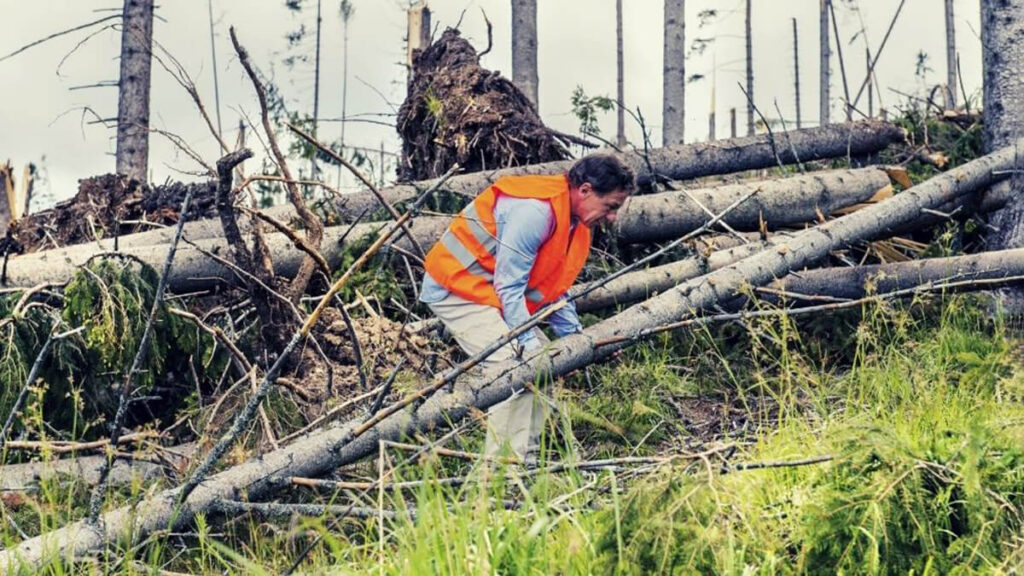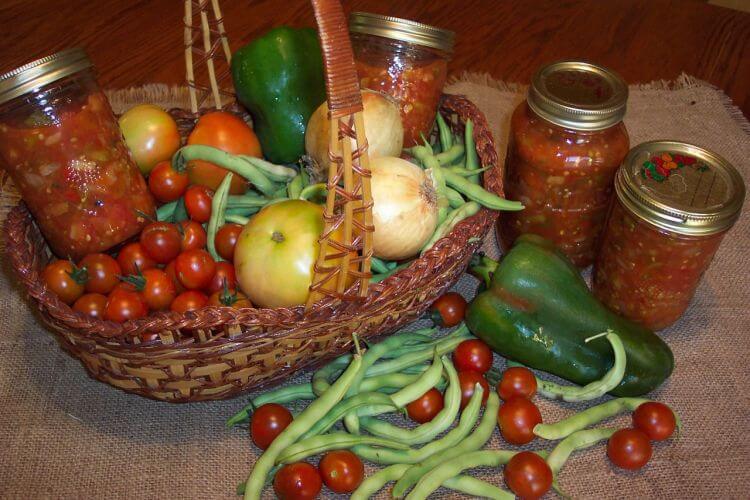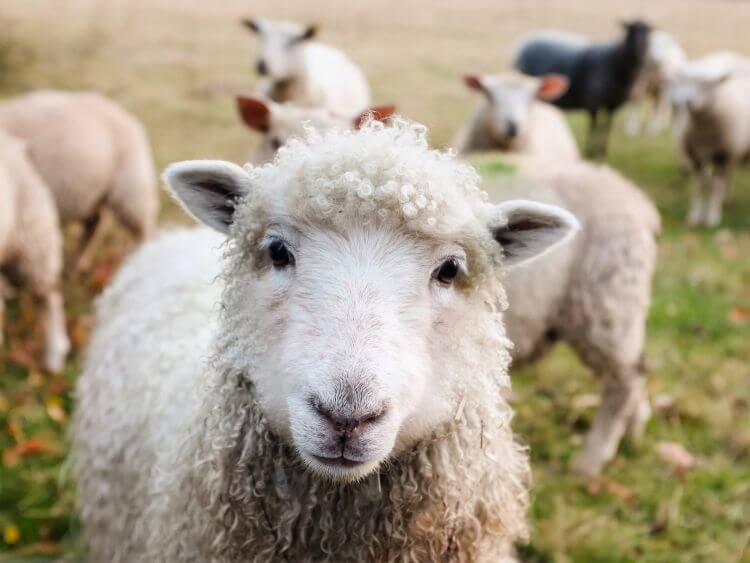
After a disaster takes place, many fall prey to the false notion that only the young can be of benefit in helping others. While the young typically have less health problems, greater energy levels, greater levels of strength, and more physical stamina than older adults, the idea that seniors are useless post-disaster is a falsehood.
People have inherent value that they hold that value even as they age. While there are certainly some seniors who have needs so high that it’s impractical for them to offer help, those individuals are the minority of seniors living among us today. Most seniors can help themselves and others affected by disaster through the following examples of activities.
What’s more, if you know enough seniors, you’ll know that many of them are preppers, whether they identify as one or not. They rarely throw anything out that might one day serve a purpose. They are wise with their money. Rural seniors often keep a garden. The similarities with preppers goes on.
It’s true, however, that seniors face a higher risk of violence in a disaster. For this reason, it’s wise for families to take their elders into their homes during a prolonged collapse. I hope this article helps shape this reality in a positive light. Most seniors will not be liabilities but assets.
1. Keeping Watch
Post-disaster communities are dangerous. There is a widely held belief that the average American household has just three days’ worth of food in their home. While I cannot find any verifiable data to support this claim, I would not be surprised if it’s accurate, and even if it’s four day’s worth, it’s still not enough in a prolonged crisis.
After the food runs out people will look outside their homes for the next meal. Hungry people become desperate people, and desperate people become dangerous.
What would you do to keep your child from growing dangerously hungry? Increasing levels of violence is an inherent aspect of disaster. It’s because of this that the longer a crisis goes on the more dangerous society becomes.
During these types of situations, you very well may need to set up an observation post to guard your property. Neighborhoods may need to set up roadblocks to keep strangers out. A senior can fill this role perfectly.
If health or mobility issues keep a senior from being able to engage in many of the other activities of a post-disaster world that involve high levels of physicality, then let them man an observation post during a time when they’re not prone to fall asleep.
You still need people to make sure the property isn’t being invaded. A senior can help here.
2. Cooking
I don’t know about you, but my experience with seniors is that they know how to cook. How many of us look forward to Thanksgiving or Christmas every year because we know we’ll get the chance to eat grandma’s sweet potato casserole and stuffed turkey?
We’ve become a society that eats out more frequently than older generations ever did, and when we do eat in, much of the food is packaged in some way or otherwise prepped for easier cooking. Cooking great meals from basic ingredients is becoming a lost skill. Older generations know how to do this. They know how to work with food versus just opening up a box and putting the contents in an oven.
Cooking doesn’t require great levels of physical strength and can easily be handled by a senior. Even if they’re not a great cook, they can still peel potatoes, snap green beans, or chop tomatoes in preparation for a meal – and typically all while sitting in a chair!
If your survival retreat is low on manpower and you know that you need all your younger members outside working, let seniors run the kitchen.
3. Radio Communications
According to Howard Michel, CEO of ARRL in his Second Century editorial in QST May 2019:
- Average ARRL Member is 68 years old. 54% are Extra Class, 31% General Class.
- Average Nonmember is 52 years old. 75% are Technician Class, 18% General, 7% Extra.
According to Wikipedia, the average age is over 80 years old in some countries!
This is probably not a surprise to anyone that works with ham radio operators. They are almost all older retired guys – typically engineers. These guys are not only some of the most knowledgeable people you will ever meet when it comes to radio communications, but they also know how to rig up a radio out of anything.
These are people who can solder a radio from spare parts. These are the people who can repair just about anything that utilizes wires and capacitors. These are the guys who know how to set up a radio network.
Communications ability is vital regardless of whether you’re living in a disaster area or not, but the ability to share vital information becomes exponentially more important post-disaster. As we mentioned above, violence increases post-collapse. Ukraine, all of Africa, Hurricane Katrina – they all point to this.
Seniors can not only help you to get your radio communications ability in order, but even if they don’t have the know-how to craft a radio setup from scratch, they can man one.
Let’s say you have a 300-acre cattle ranch. Fifteen of your family members are living there after a cyber attack leaves the United States without power. A senior could easily man the radio base station in the farmhouse throughout the bulk of the day to relay messages throughout the ranch without having to be involved in exposure to severe weather or high levels of physicality.
4. Gardening
Preppers routinely point to gardening as being one of the best ways a family can improve its disaster resiliency. And guess what? Gardening is also a popular pastime of seniors throughout the country!
Not only can a senior help with keeping your garden up to par, they also are often a wealth of information on anything gardening. After all, if you have 80 seasons’ experience raising a garden, you’re going to know a thing or two about fighting common garden pests, raising crops, and keeping a garden in order compared to the guy who just started raising his own garden three years ago.
There are even health benefits to a senior working in the garden. Decreased risk of dementia, decreased depression, increased levels of strength – these are all benefits of gardening for seniors.
Food production is vital after a disaster as food stores are gradually whittled away. These food stores need to be replaced, and gardening is a necessary component of that. And a senior can help to do just that.
5. Canning

Hand in hand with gardening is canning. It doesn’t do much good to have a 3-acre harvest coming in but to not be able to keep it from spoiling before you can eat it, does it? This is where food preservation comes to the foreground of the conversation, and canning is a great means of doing it.
In my experience, rarely does anybody know as much about canning as a senior. Many spent their entire childhood canning everything that came out of the garden so that the family would have enough food throughout the winter. Seniors are the ones who still show up at agriculture fairs, submitting their preserves and home-grown vegetables to the competitions.
Any time I have a question about canning a particular crop that I’m unfamiliar with, I turn to a senior. They not only know exactly what I need to do, but they know how to use 15 different recipes for that particular food. Senior can easily help to keep food from going bad in a time of chaos.
6. Carrying a Rifle

Some of the best shots I know are old guys. They’ve shot scores of deer, hundreds of ducks, thousands of skeets, and half their county’s squirrel population throughout their lifetimes. These are guys who straight up know how to shoot. Many also have military experience.
If you end up in a dangerous situation where you need men with rifles to protect your family and provisions, this is something to consider.
7. Keeping Kids Entertained and Safe
Kids are crazy. They do things no rational human being would ever dream of. Playing with fireworks in the house? Jumping off the roof with a bed sheet as a parachute? Throwing rocks through windows? These are all fun pastimes for kids.
They require parenting and supervision. A senior can help to do just that. Parents drop their kids off at grandma and grandpa’s all the time, right? Though the kids are returned pumped full of sugar, they are still uninjured (most of the time). Seniors can easily help to keep track of kids as they behave as kids throughout a disaster.
This is a task that must be done, and a senior makes a great option for it.
8. Taking Care of Animals

If you have chickens, dogs, horses, goats, or some other form of livestock that needs to be tended to daily, this can serve as a great job for a senior. Not only is this usually a relaxing activity to take care of, but the levels of physicality are also manageable for a senior as well.
Carrying a bucket of water and throwing corn to chickens is a straightforward process. Tending to animals involves routine, is low stress, and a lot of fun as well. This can easily be a job that a senior could tend to.
9. Fixing Things
The best Mr. Fixits you’ll ever meet are old men. Most can fix just about anything. If they didn’t know how to fix something, they figured it out. It was often out of necessity as they came from an era when there were fewer services and money was tighter.
It’s important to keep in mind that things are going to break around your survival retreat. The old prepper adage “two is one, and one is none” exists because Murphy’s Law is very real.
When things break, a senior with fixit experience can easily get whatever piece of gear it is you have up and running in no time. They’ve spent their entire life dealing with the uphill battle of home maintenance, of fixing their own cars, and of working with tools. Remember, that shop was a school staple for most of these guys and working with their hands is something pretty much all of them are experienced in.
It’s only the younger generations that have drifted away from manual labor and the knowledge of how to use tools. The addition of a senior at your survival retreat could easily help to fill the knowledge gaps amongst your group here.
10. Conversation and Wisdom
Human beings are social creatures. We don’t do well in solitary confinement for a reason. In a disaster situation, there are going to be high levels of boredom and potentially long periods of solitude. As human beings, though, we are still going to have that innate need for human contact. We are still going to need to talk with people – to interact.
It’s often been said that two heads are better than one. After a collapse, there are going to be many difficult and potentially dangerous decisions that are going to have to be made. There is safety in a multitude of counselors, and there is often wisdom that accompanies the graying of one’s head.
A senior can prove to be a valuable source of wisdom post-disaster and may be able to see through the potential ramifications of some decisions that others might have glossed over.
11. Teaching Forgotten Skills
Do you know how to make a quilt? Do you know how to knit? Can you patch clothing, cook on a woodstove, or gut a chicken? If you don’t know how to do this, odds are, a senior does. These are all fundamental skills of life that modern society has neglected to learn.
Yet, seniors lived through times of trouble in the past, and they often have a better understanding of the circle of life. They know what it takes to keep a family well fed, warm, and healthy without all the modern conveniences that we have today. They know what parts of a chicken you want to eat, and what parts to throw away. They know how to turn a ball of yarn into a blanket to keep a newborn baby warm. They know how to treat a cold with what’s in the kitchen pantry.
Do you?
Seniors Can Still Help. Even After Disaster.
There’s no reason whatsoever to fall for the idea that a senior is useless around a farm post-collapse simply because they can’t split wood all afternoon like everybody else. There are still plenty of things that a senior can do, and there’s a very good chance they may be more experienced at it than the other people at the retreat.
What are your thoughts? Are there other jobs that you think a senior would excel at? Are there other jobs you think they wouldn’t excel with post-collapse? Let us know in the comments below.

1 comment
Yeah, golden advices!